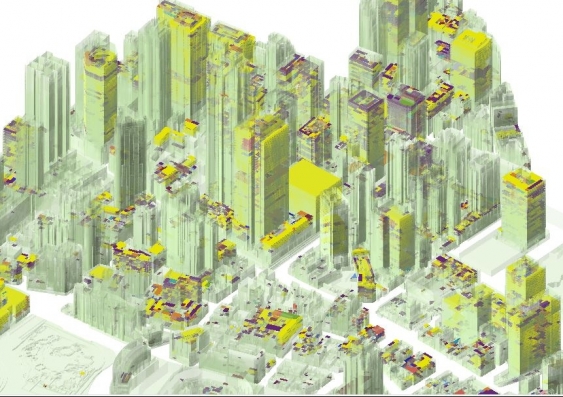Opening up data to improve city living
Managing the risks of open data while exploiting its potential to make modern cities more accessible and inclusive is the focus of a workshop at UNSW this week.
Managing the risks of open data while exploiting its potential to make modern cities more accessible and inclusive is the focus of a workshop at UNSW this week.

Managing the risks of open data while exploiting its potential to make modern cities more accessible and inclusive is the focus of a workshop at UNSW this Friday 2 October.
Hosted by UNSW Built Environment’s Smart Cities Research Cluster, the workshop will explore the expanding digital footprint of our modern cities and the opportunities this presents to improve living in an urban world.
Experts will discuss the contribution different streams of open data can make to improve city living. These include crowd sourced data, data compiled by businesses into online databases and data released in an open format by government agencies.
“Open data innovation has led to many technologies evolving. The smartphone is a good example which provides a GPS, camera and mobile internet all in one.”
Workshop co-convenor UNSW Built Environment’s Dr Scott Hawken says with nine out of every 10 people now living in cities in Australia, and the region becoming one of the most rapidly urbanising places in the world, a deeper understanding of how open data can contribute to the built environment is critical.
“Today we are living in a brand new ‘open data ecosystem’ that we don’t yet fully understand and that remains unexplored and untapped,” Dr Hawken says.
“Understanding the intersection of the physical urban environment and the digital gives us incredible power to solve problems collaboratively and greater insight into the inner workings of our cities so that we can use them more intelligently.
“Achieving open cities through the use of open data presents not only opportunities but also challenges and dangers, which we will be discussing in the workshop.”

A map detailing the economic ‘ecology’ of Sydney’s Chinatown. The ‘economic life’ of each room with Chinatown’s buildings has been mapped and inventoried by the City of Sydney and is being analysed and visualised by UNSW researchers. (Scott Hawken)
Workshop co-convenor Dr Hoon Han, Senior Lecturer with UNSW’s Built Environment, says the impact of open data and technology on human behaviour within cities will also be explored in the workshop.
“Open data innovation has led to many technologies evolving towards performing similar tasks. The smartphone is a good example which provides a GPS, camera and mobile internet all in one,” says Dr Hoon.
“As technology converges there remains a lack of understanding regarding exactly how humans are interacting with these new technologies.”
The keynote speakers at the workshop are:
What: Open Cities – Open Data: a workshop hosted by The Smart Cities Research Cluster
When: 10:30am – 5:30pm. Friday 2 October 2015
Where: Tyree Energy Technologies Building, UNSW Kensington campus.
For more information on the event or to register, go to: https://www.be.unsw.edu.au/OpenCities